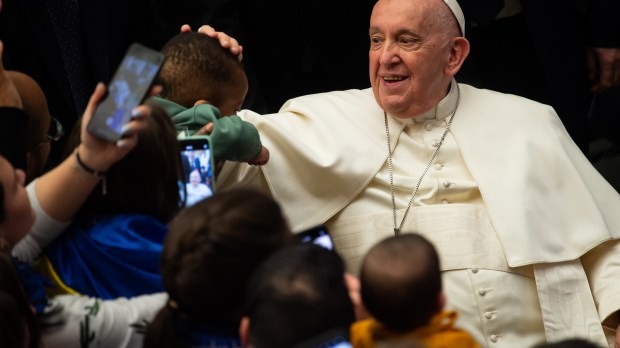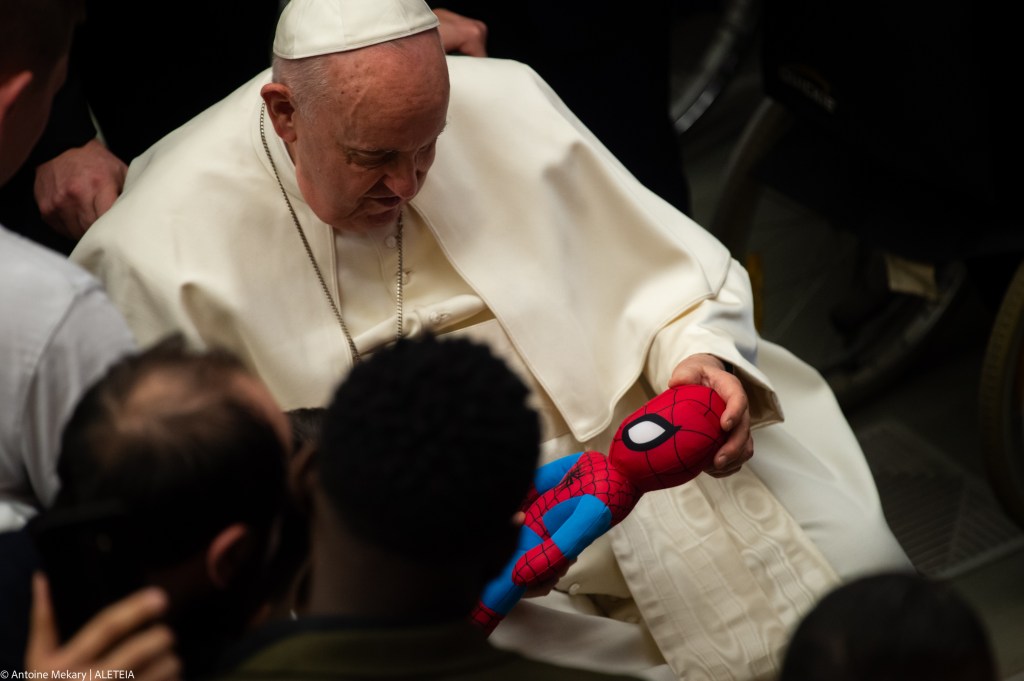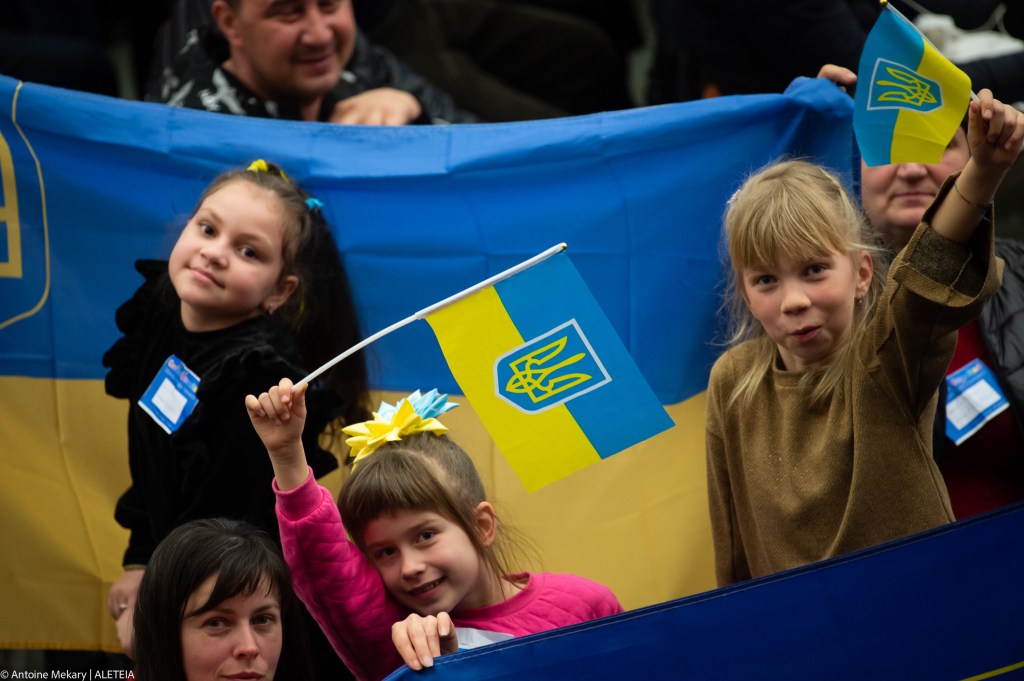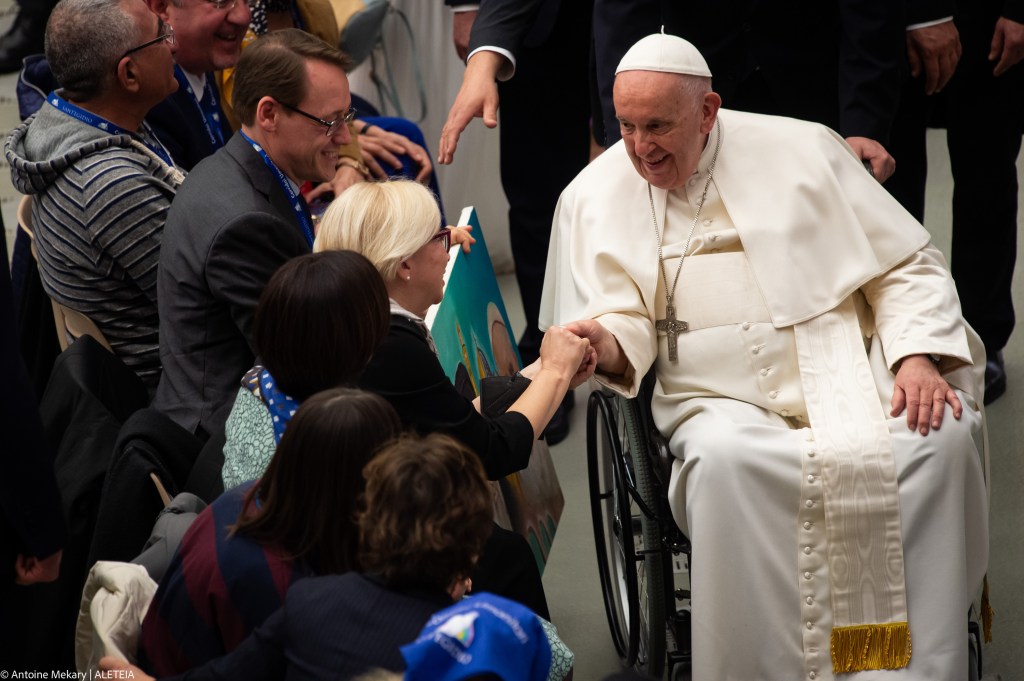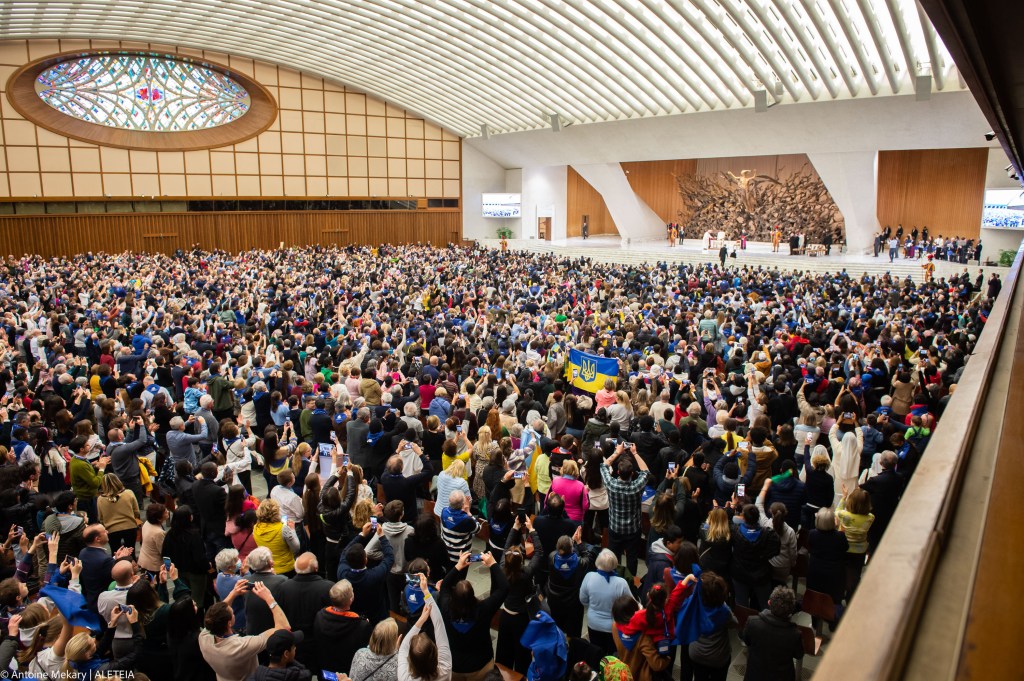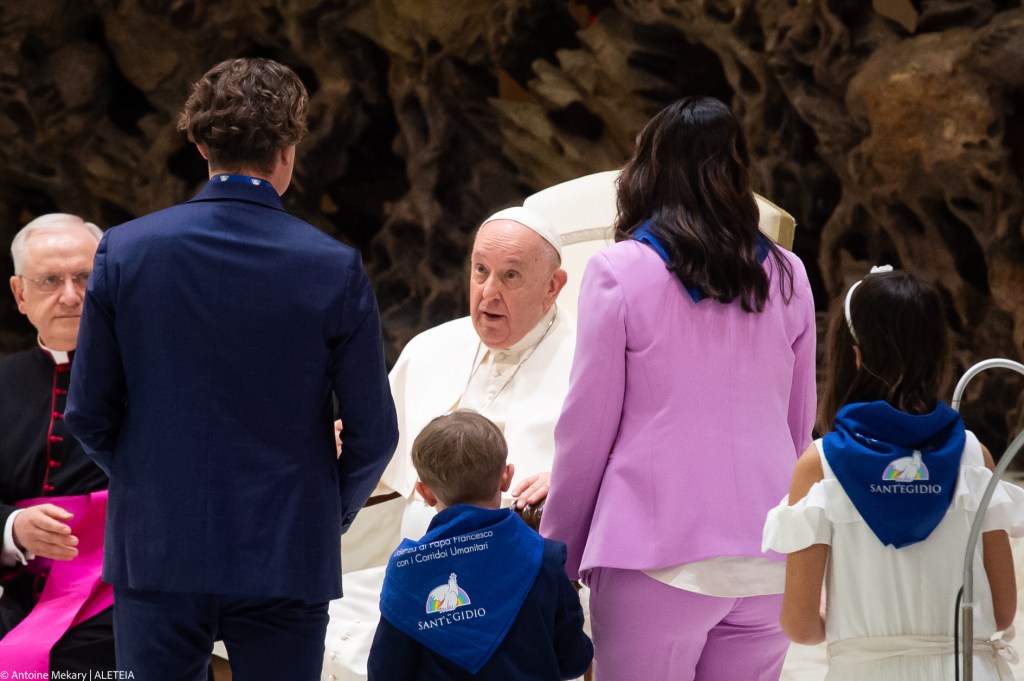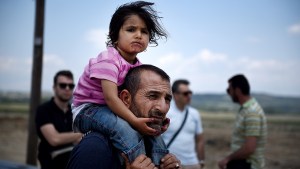Pope Francis called for opening more legal channels of migration during a meeting with refugees who have arrived in Europe through humanitarian corridors set up by various Christian and governmental organizations. During the audience held in Paul VI Hall, the Holy Father also denounced the conditions of those detained in Libyan camps.
The head of the Catholic Church referred to the shipwreck that killed at least 87 people in the Mediterranean near Steccato di Cutro in Calabria, southern Italy, on February 26. The tragedy, he said, while investigations are underway to determine responsibility, should not have happened and everything must be done to prevent it from happening again.
The humanitarian corridors were established in 2016 as a response to the increasingly dramatic situation in the Mediterranean. Today, it must be said that this initiative is, tragically, not only most timely but also more necessary than ever, as the recent shipwreck in Cutro sadly attests. That disaster should never have happened, and everything possible needs to be done to ensure that it will not be repeated. Humanitarian corridors build bridges that many children, women, men, and older persons fleeing from unstable and gravely dangerous situations cross in order to arrive safely, legally and with dignity, in their host countries. These corridors cross borders and, more importantly, break down the walls of indifference that have shattered the hopes of so many people who have waited for years in painful and unbearable situations.
The 86-year-old Pontiff had a special message for Ukrainian refugees, saying that the work to help migrants is itself a commitment to peace:
A number of Ukrainian refugees are present here; to them I want to say that the Pope does not give up seeking peace, hoping for peace and praying for peace. I do this for your gravely afflicted country and for other countries affected by war; in our midst are many people who have fled from other wars.
He also expressed sorrow for the experience of “pain, humiliation and violence” of those who have passed through the detention camps in Libya, criticizing the intermediaries “who take advantage of need and suffering.”
Throughout the text, Pope Francis calls on Europe not to remain “frozen, fearful, and lacking vision for the future.” Humanitarian corridors are “more necessary than ever,” he notes, before arguing that “safe, orderly, regular and sustainable migration is in the interest of all countries.”
Integration: difficult but necessary
As the “son of a family of emigrants” from Piedmont, the Argentine pontiff also recalls the need for integration, although it is not “without challenges.”
The “good example” of refugees who have made this effort to integrate can “dispel fears and alarms about foreigners,” he said.
The refugee families who were present at the audience have arrived in Italy, France, Belgium, San Marino and Andorra through the humanitarian corridors launched in 2016 by the Catholic lay Community of Sant’Egidio, in collaboration with governments and the Federation of Evangelical Churches, the Table Vaudoise, as well as Caritas.
In total, 6,080 people have been able to reach the Old Continent in this way.
